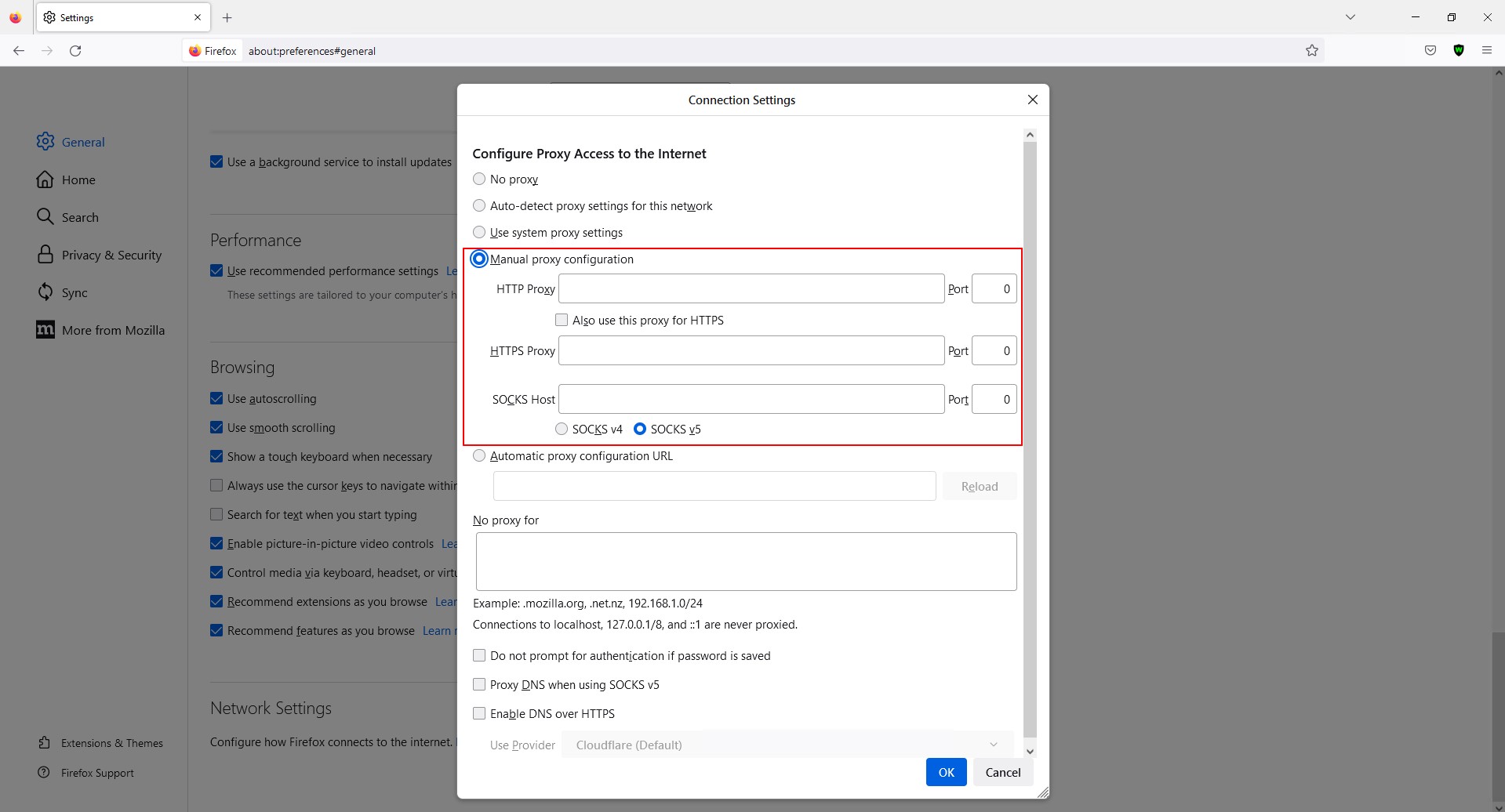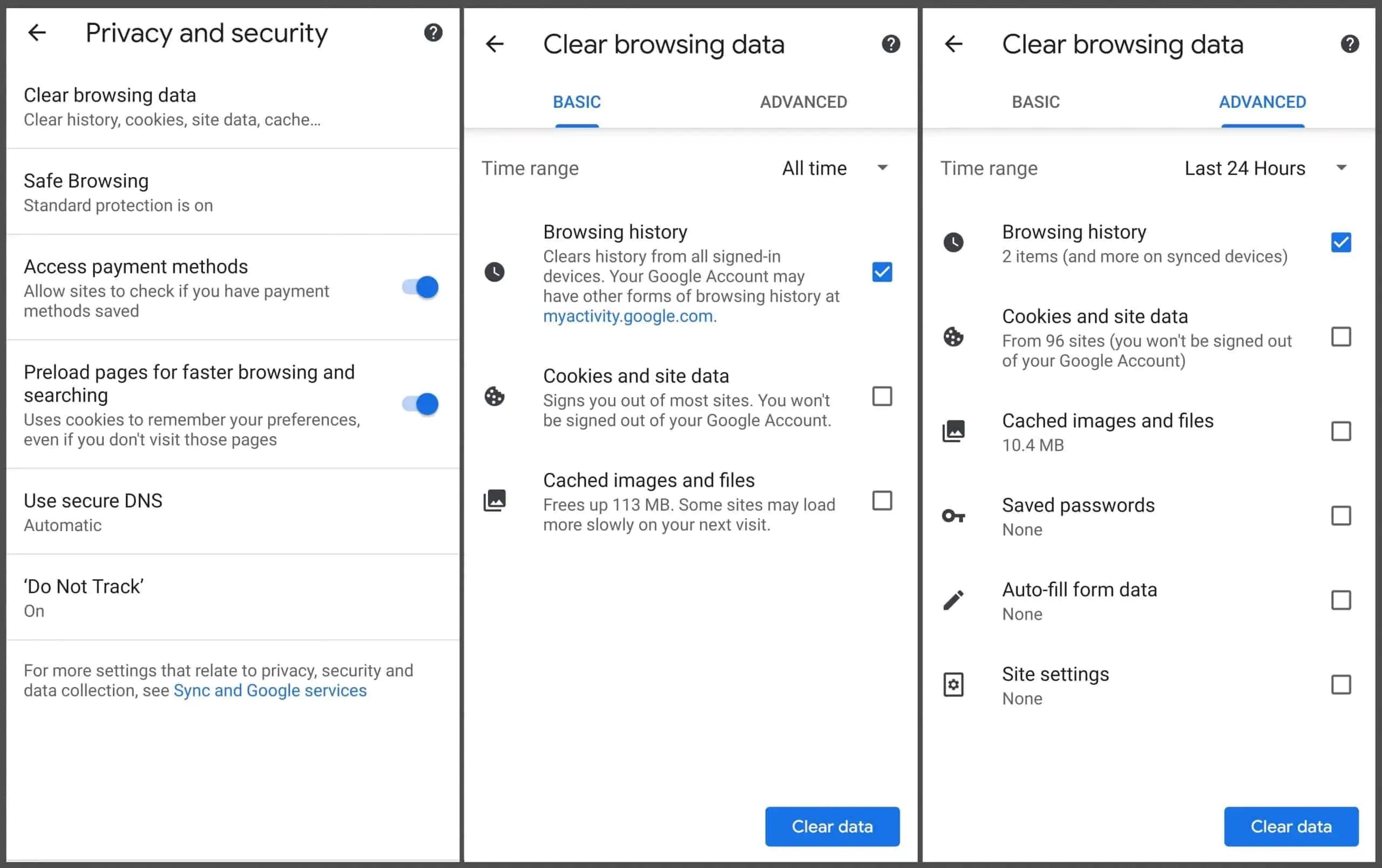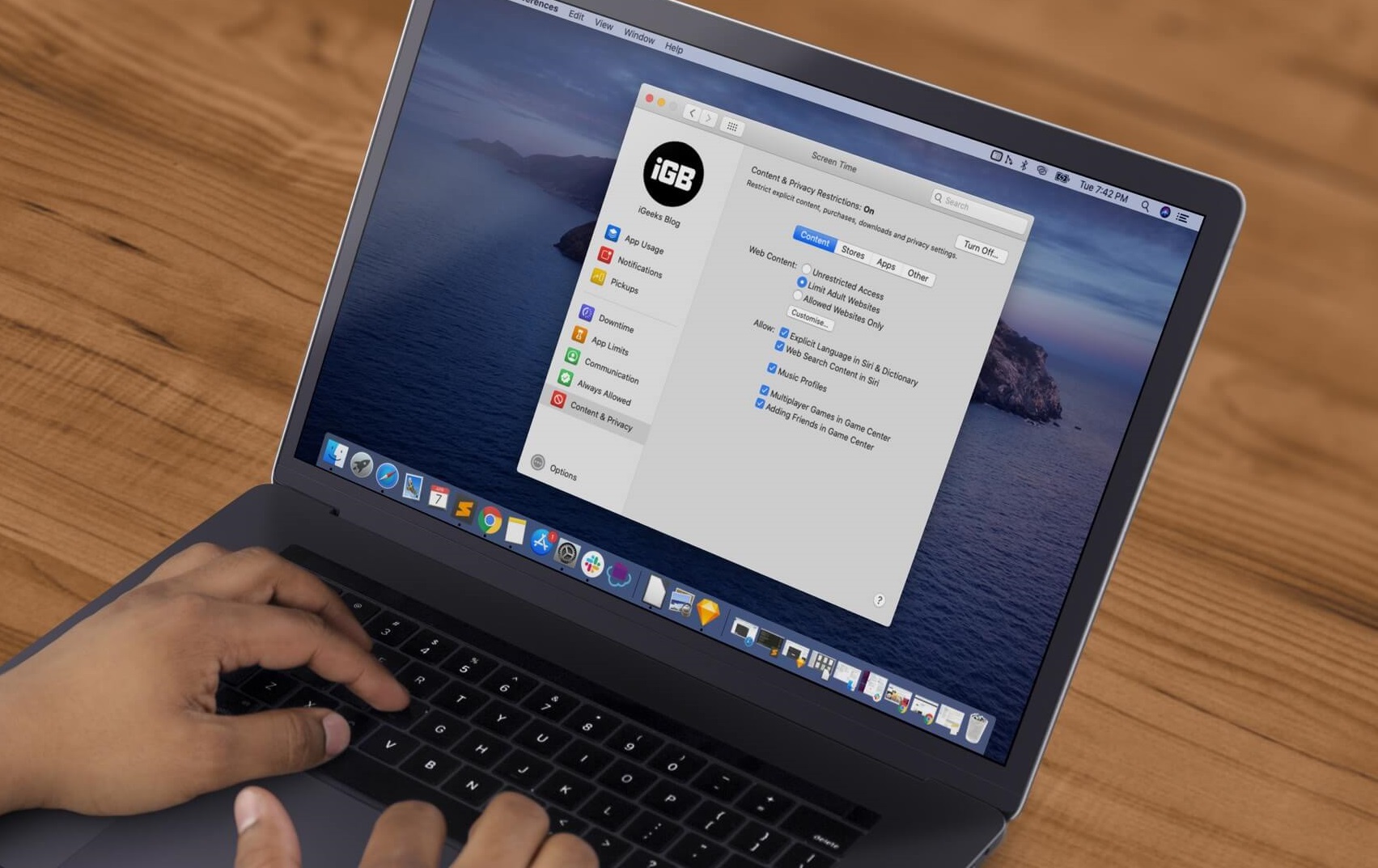Introduction
In the digital age, web browsers have become an integral part of our daily lives. Whether we are researching a topic, shopping online, or connecting with friends on social media, we rely on web browsers to navigate the vast expanse of the internet. As we traverse the virtual landscape, our browsers quietly record our online activities, creating a digital trail known as browser history.
The concept of browser history may seem straightforward, but its implications are far-reaching. Every website visited, every search query entered, and every link clicked leaves a mark in the annals of browser history. This record not only serves as a personal log of our online journey but also plays a pivotal role in shaping our browsing experience.
Understanding the intricacies of browser history is essential for anyone who ventures into the digital realm. From its technical underpinnings to its impact on privacy and security, browser history encompasses a myriad of facets that warrant exploration. By delving into the depths of browser history, we can unravel its significance, shed light on its inner workings, and gain insights into its implications for users across the globe.
As we embark on this journey through the digital corridors of browser history, we will uncover the mechanisms that drive its functionality, examine its implications for privacy and security, and explore the methods for managing and clearing this digital footprint. By peering into the realm of browser history, we can gain a deeper appreciation for the role it plays in our online experiences and equip ourselves with the knowledge to navigate its complexities effectively.
Definition of Browser History
Browser history refers to the record of web pages and online content that an individual has visited within a specific web browser. It serves as a chronological log of the user's online activities, capturing details such as visited URLs, search queries, and the time and date of each interaction. Essentially, browser history acts as a digital trail that documents the user's browsing journey, providing a retrospective view of their online engagements.
When a user accesses a website, the browser captures and stores pertinent information about the visit, including the website's address, the duration of the visit, and any interactions such as form submissions or downloads. This data is then cataloged within the browser's history, allowing users to revisit previously accessed web pages and retrace their steps through the virtual landscape.
Browser history is not limited to individual web pages; it also encompasses the user's search history, documenting the queries entered into search engines and the subsequent websites visited as a result. This comprehensive record offers users the convenience of revisiting previously viewed content and facilitates swift access to frequently accessed websites.
The concept of browser history extends beyond a mere log of visited websites; it encapsulates the user's digital footprint, reflecting their online behaviors, interests, and preferences. As users navigate the internet, their browser history accumulates a wealth of data that mirrors their online interactions, forming a personalized narrative of their virtual explorations.
In essence, browser history serves as a digital diary of the user's online journey, chronicling their interactions with the vast expanse of the internet. This historical record not only provides users with a means to revisit past online destinations but also offers insights into their browsing habits and interests. Understanding the nature of browser history is crucial for comprehending its impact on user privacy, security, and overall browsing experience.
By unraveling the intricacies of browser history, users can gain a deeper appreciation for the role it plays in shaping their online interactions and equip themselves with the knowledge to navigate its implications effectively.
How Browser History Works
Browser history operates as a dynamic repository that captures and stores a comprehensive record of a user's online activities. When a user accesses a website, the browser meticulously catalogs pertinent details about the visit, including the website's URL, the time and date of the visit, and any interactions such as form submissions or downloads. This information is then seamlessly integrated into the browser's history, creating a chronological log of the user's browsing journey.
The mechanism behind browser history involves the seamless capture and storage of user interactions with web content. As users navigate the internet, their browser diligently records each visited web page, creating a detailed timeline of their online engagements. This process enables users to retrace their digital footsteps and revisit previously accessed websites with ease.
Search history, a pivotal component of browser history, functions by documenting the user's search queries and the subsequent websites visited as a result. When a user enters a search query into a search engine, the browser records the query and the corresponding search results, thereby enriching the user's browsing history with a comprehensive account of their online searches.
Moreover, modern web browsers often synchronize browser history across multiple devices, allowing users to access their browsing history seamlessly from different platforms. This synchronization ensures that users can seamlessly transition between devices while retaining access to their complete browsing history, thereby enhancing the continuity of their online experiences.
The functionality of browser history extends beyond mere data storage; it also encompasses features that facilitate efficient navigation and retrieval of web content. Users can leverage their browsing history to revisit previously viewed web pages, access frequently visited websites, and retrace their online interactions with precision.
In essence, browser history operates as a dynamic and evolving record of a user's online journey, capturing the nuances of their digital interactions and preferences. By comprehending the underlying mechanisms of browser history, users can harness its capabilities to enhance their browsing experiences and gain valuable insights into their online behaviors and interests.
Importance of Browser History
Browser history holds significant importance in shaping the browsing experience of users and facilitating seamless navigation of the internet. Its relevance spans across various aspects, encompassing convenience, productivity, and personalization.
1. Convenience and Efficiency
Browser history serves as a valuable repository of previously visited web pages, enabling users to revisit familiar online destinations with ease. This convenience eliminates the need to manually re-enter URLs or rely on search engines to locate specific content, thereby streamlining the browsing process. By leveraging their browsing history, users can swiftly access frequently visited websites, reference previously viewed articles, and retrace their online interactions without unnecessary effort.
2. Productivity and Research
For individuals engaged in research, academic pursuits, or professional endeavors, browser history plays a pivotal role in enhancing productivity. The ability to revisit previously accessed resources, scholarly articles, or research materials expedites the information retrieval process, empowering users to build upon their prior findings and delve deeper into their areas of interest. This seamless access to historical web content fosters a conducive environment for continuous learning, exploration, and knowledge acquisition.
3. Personalization and Tailored Experiences
Browser history contributes to the personalization of the browsing experience by reflecting the user's preferences, interests, and online behaviors. By analyzing the user's browsing history, web browsers can offer tailored recommendations, personalized search results, and targeted advertisements that align with the user's demonstrated interests. This personalized approach enhances the relevance of online content, enriches the user's browsing experience, and fosters a sense of individualized engagement with the digital landscape.
4. Navigational Assistance
The comprehensive record of visited web pages and search queries within browser history serves as a navigational aid, guiding users through their online journey. Whether retracing steps to locate a previously viewed article, referencing a past online purchase, or revisiting a website of interest, browser history empowers users to navigate the internet with precision and confidence. This navigational assistance streamlines the process of accessing specific web content, thereby enhancing the user's overall browsing experience.
In essence, browser history stands as a cornerstone of the modern browsing experience, offering unparalleled convenience, productivity enhancements, personalized engagement, and navigational support. Its significance extends beyond mere data storage, shaping the way users interact with the internet and enriching their online endeavors with efficiency and personalization. Understanding the importance of browser history empowers users to harness its capabilities effectively, thereby optimizing their digital interactions and maximizing the value derived from their browsing experiences.
Privacy and Security Concerns
The pervasive nature of browser history raises profound privacy and security concerns that warrant careful consideration. While browser history offers convenience and personalized experiences, it also presents inherent risks related to the exposure of sensitive information, potential tracking, and susceptibility to unauthorized access.
1. Data Privacy and Confidentiality
Browser history encapsulates a wealth of sensitive information, including visited websites, search queries, and online interactions. This comprehensive record, if compromised, can divulge personal preferences, browsing habits, and potentially confidential activities. The exposure of such data can infringe upon user privacy, leading to concerns regarding the unauthorized disclosure of personal information and the potential exploitation of sensitive browsing behaviors.
2. Tracking and Profiling
The accumulation of detailed browsing history enables the potential tracking and profiling of users by various entities, including advertisers, data brokers, and even malicious actors. By analyzing browsing patterns and preferences gleaned from browser history, these entities can construct detailed profiles of users, enabling targeted advertising, behavioral analysis, and potentially invasive surveillance. The pervasive tracking facilitated by browser history raises apprehensions regarding user autonomy, consent, and the ethical implications of extensive data profiling.
3. Security Vulnerabilities
Browser history, if left unsecured, poses inherent security vulnerabilities that can be exploited by malicious entities. Unauthorized access to browsing history can expose users to risks such as identity theft, financial fraud, and unauthorized account access. Additionally, the retention of sensitive information within browser history, such as login credentials and financial transactions, amplifies the potential impact of security breaches, underscoring the critical need for robust safeguards to protect browsing data from unauthorized access and exploitation.
4. Cross-Device Synchronization
The synchronization of browser history across multiple devices introduces additional privacy and security considerations. While this feature enhances the continuity of the browsing experience, it also amplifies the potential impact of a security breach. Compromised browsing history from one device can propagate to others, magnifying the repercussions of unauthorized access and underscoring the need for stringent security measures to safeguard synchronized browsing data.
In light of these privacy and security concerns, users must exercise vigilance and adopt proactive measures to mitigate potential risks associated with browser history. Implementing robust privacy settings, regularly clearing browsing history, and leveraging privacy-focused browser extensions can bolster user privacy and enhance the security of browsing data. By cultivating awareness of the privacy and security implications of browser history, users can navigate the digital landscape with heightened caution and fortify their defenses against potential threats to their online privacy and security.
Managing and Clearing Browser History
Managing and clearing browser history is essential for maintaining privacy, optimizing browser performance, and ensuring a streamlined browsing experience. By proactively managing browser history, users can exert greater control over their digital footprint and mitigate potential privacy and security risks associated with persistent browsing data.
Importance of Regular Maintenance
Regular maintenance of browser history is crucial for safeguarding privacy and preserving system resources. As browsing history accumulates over time, it can consume significant storage space and potentially impact the performance of the web browser. By routinely clearing outdated browsing data, users can alleviate the burden on system resources and promote optimal browser functionality.
Clearing Browsing Data
Most modern web browsers offer intuitive options for clearing browsing data, including history, cookies, cached images and files, and other site data. Users can typically access these settings within the browser's privacy or history preferences, allowing them to selectively remove specific types of browsing data based on their preferences.
Customization and Selective Clearing
Users have the flexibility to customize the scope of data to be cleared, enabling selective removal of specific time ranges, websites, or types of browsing data. This granular control empowers users to tailor the clearing process to align with their privacy preferences and browsing habits, ensuring that sensitive or outdated data is promptly removed while retaining relevant information.
Privacy-Focused Browser Extensions
In addition to built-in clearing options, users can enhance their privacy management capabilities by leveraging privacy-focused browser extensions. These extensions offer advanced features for managing browsing data, enhancing privacy controls, and implementing automated clearing schedules. By integrating privacy-focused extensions into their browsing experience, users can augment their ability to maintain a clean and secure browsing environment.
Proactive Privacy Measures
Beyond periodic clearing of browsing data, users can adopt proactive privacy measures to minimize the accumulation of sensitive information in browser history. This includes utilizing private or incognito browsing modes for sensitive activities, implementing robust password management practices, and exercising caution when granting permissions to websites and third-party services.
Empowering User Control
By actively managing and clearing browser history, users can reclaim agency over their online privacy and fortify their defenses against potential privacy and security threats. This proactive approach not only enhances privacy but also contributes to a more streamlined and efficient browsing experience, free from the encumbrances of unnecessary browsing data.
In essence, managing and clearing browser history is a fundamental aspect of responsible digital citizenship, empowering users to curate their online footprint, safeguard their privacy, and optimize their browsing environment. By embracing proactive privacy practices and leveraging the tools at their disposal, users can cultivate a secure and personalized browsing experience that aligns with their individual preferences and privacy requirements.
Conclusion
In conclusion, browser history stands as a multifaceted cornerstone of the modern digital landscape, encapsulating the user's online journey, preferences, and interactions. It serves as a testament to the user's virtual explorations, offering a retrospective lens through which to revisit past web destinations and glean insights into browsing habits and interests. The significance of browser history extends beyond mere data storage, permeating various facets of the browsing experience and shaping the user's interactions with the internet.
The intricate mechanisms that underpin browser history, from the seamless capture of browsing data to the synchronization across multiple devices, underscore its dynamic nature and its pivotal role in facilitating efficient navigation and personalized engagement. By comprehending the inner workings of browser history, users can harness its capabilities to enhance their browsing experiences, optimize productivity, and gain valuable insights into their online behaviors.
However, the pervasive nature of browser history also raises profound privacy and security concerns, necessitating a nuanced approach to its management and clearance. The accumulation of sensitive browsing data, if left unchecked, can pose risks to user privacy and security, underscoring the critical need for proactive measures to mitigate potential threats and safeguard browsing data from unauthorized access and exploitation.
By embracing proactive privacy practices, leveraging privacy-focused browser extensions, and adopting selective clearing strategies, users can reclaim agency over their online privacy and fortify their defenses against potential privacy and security threats. This proactive approach not only enhances privacy but also contributes to a more streamlined and efficient browsing experience, free from the encumbrances of unnecessary browsing data.
In essence, understanding the intricacies of browser history empowers users to navigate the digital landscape with heightened awareness, enabling them to optimize their browsing experiences, safeguard their privacy, and curate a secure and personalized online environment. By embracing responsible digital citizenship and leveraging the tools at their disposal, users can cultivate a browsing experience that aligns with their individual preferences and privacy requirements, thereby maximizing the value derived from their online interactions.

























